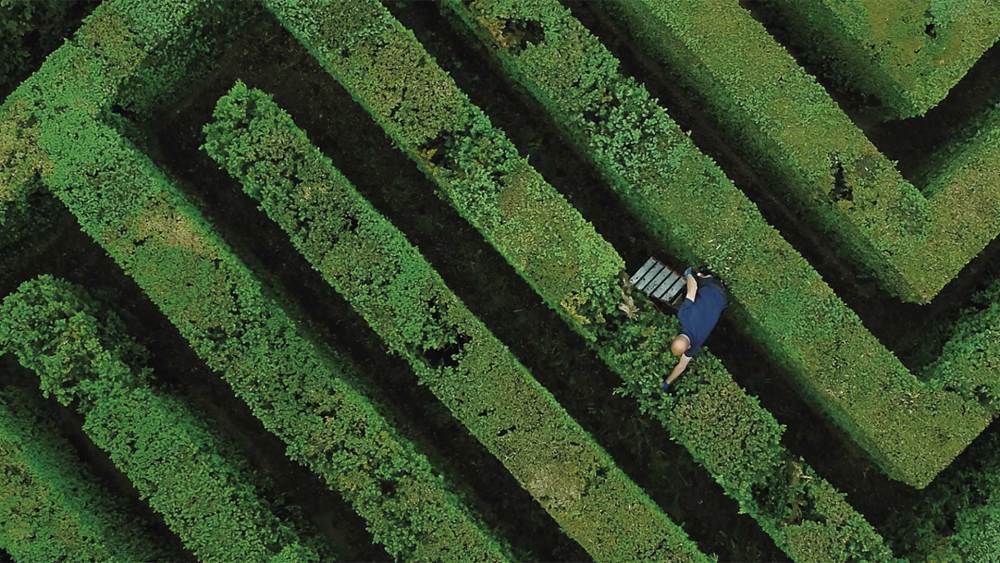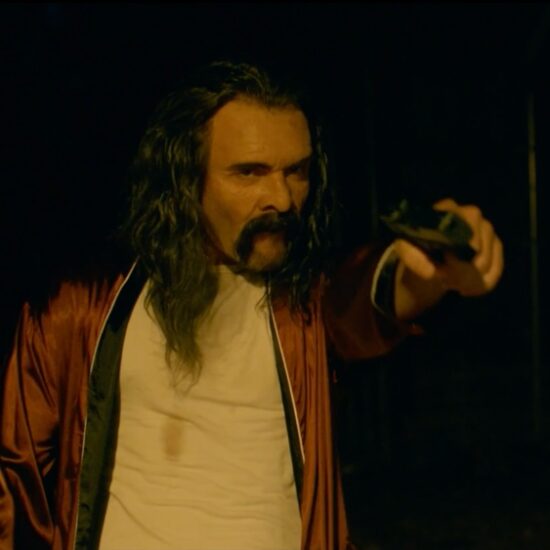
Paris-based CAT&Docs has come onboard as sales agent for Italian-Swedish director Erik Gandini’s “After Work,” which had its world premiere in the main competition at CPH:DOX, the Copenhagen Intl. Documentary Film Festival. Variety speaks to the director at the festival.
In this stunningly cinematic doc, lensed by Ruben Östlund’s long-time DOP Fredrik Wenzel and shot in the U.S., Italy, South Korea and Kuwait, Gandini explores the notion of work in the 21st century, as automation and technology free up time, and asks what the future could be like in a work-free society.
One of the inspirations for the film, Gandini says, was Swedish sociologist Roland Paulsen’s writings on the ideology of work, which is rooted in the notion of a work ethic developed some 350 years ago.
“It was very relevant at the beginning of the industrial revolution because we needed to build so much. Everybody needed to work, it became the perfect idea for the time, and it also became a religious idea. But this is not compatible with the present, and definitely not with the future if technology is about to help us save so much time.”
According to a Gallup survey mentioned in the film, 85% of people worldwide are not engaged in their work – Gallup defines employee engagement as the involvement and enthusiasm of employees in their work and workplace. And yet, workers in the U.S. give up more than 500 million hours of holiday each year.
“It’s a system of values that makes us work regardless of how efficient technology becomes. Essentially, [it’s] this strong idea that we should work for the sake of working.”
South Korea has a similar work culture, he says, “but at least they try to do something about it,” he adds, referring to a clip from a government film featured in “After Work” that encourages people to spend time with their families rather than work long hours.
“That particular clip was somehow the essence of the whole project: when people lack imagination of what life could be, when you need to help them with imagery – this is how I see my film, too: we need some sort of stimulus or help because we can’t even think a different type of relationship to work.”
Seeking answers to this future without work, Gandini heads to Kuwait, where everyone has the constitutional right to a job, but where there isn’t enough work for everyone.
“So, you have 20 people doing the job of one person: you get money from the state and in return you’re asked to act, to pretend to work…
“I went there really hoping that maybe we could find something hopeful about a work-free [society],” says Gandini.
Asked whether his hopes were met, he answers truthfully: “They have all this money and, still, they sit behind their desks as if they cannot imagine anything different. It’s very emotionally, existentially, depressing: the idea that you are doing something that is completely useless and it’s so normalized.”
Turning the lens on Italy, Gandini says he found some elements of an answer in the NEET (Not in Employment, Education or Training) population, which is the highest in Europe. “In Italy – and this is my own experience – people don’t look at work in the same way: there’s an appreciation of life, a hedonism.
“It’s easy to see the NEET phenomenon as lazy spoiled brats, with this “It was better before” nostalgia. What I love to do in a film is to really explore forbidden ideas: maybe this idea, which is so easy to trash or criticize, could hold something that is fruitful when you think about an alternative to the work ethic which you see in South Korea or in the U.S.”
Taking it further, Gandini interviews a rich Italian heiress who leads a fulfilling work-free life.
“Rich people are usually ridiculed in documentaries. But, somehow, they become interesting as a reference of how you can really train yourself to [make decisions about how you spend] your time, and not let anybody else do it.”
Gandini, who works as a professor of documentary film at Stockholm University of the Arts, says deciding over your own time is an existential challenge for most people.
“I teach film, and when you give the students total freedom, you’re like: ‘You’re an artist, do whatever you want,’ sometimes people freak out, it’s not easy.”
While he doesn’t profess to come up with any given answers in his film, Gandini said the reaction of the Copenhagen crowd at the film’s premiere, where the question “What would you do if you didn’t have to work?” was on everyone’s lips, proves that “After Work” addresses existential questions of a very timely nature.
“After Work” is produced by Stockholm-based Fasad and co-produced by Propaganda Italia, in collaboration with Rai Cinema, SVT, Film I Väst, Indie Film Norway, with co-financing from VPRO and Geo Television.
CPH:DOX runs from March 15 through March 26.













